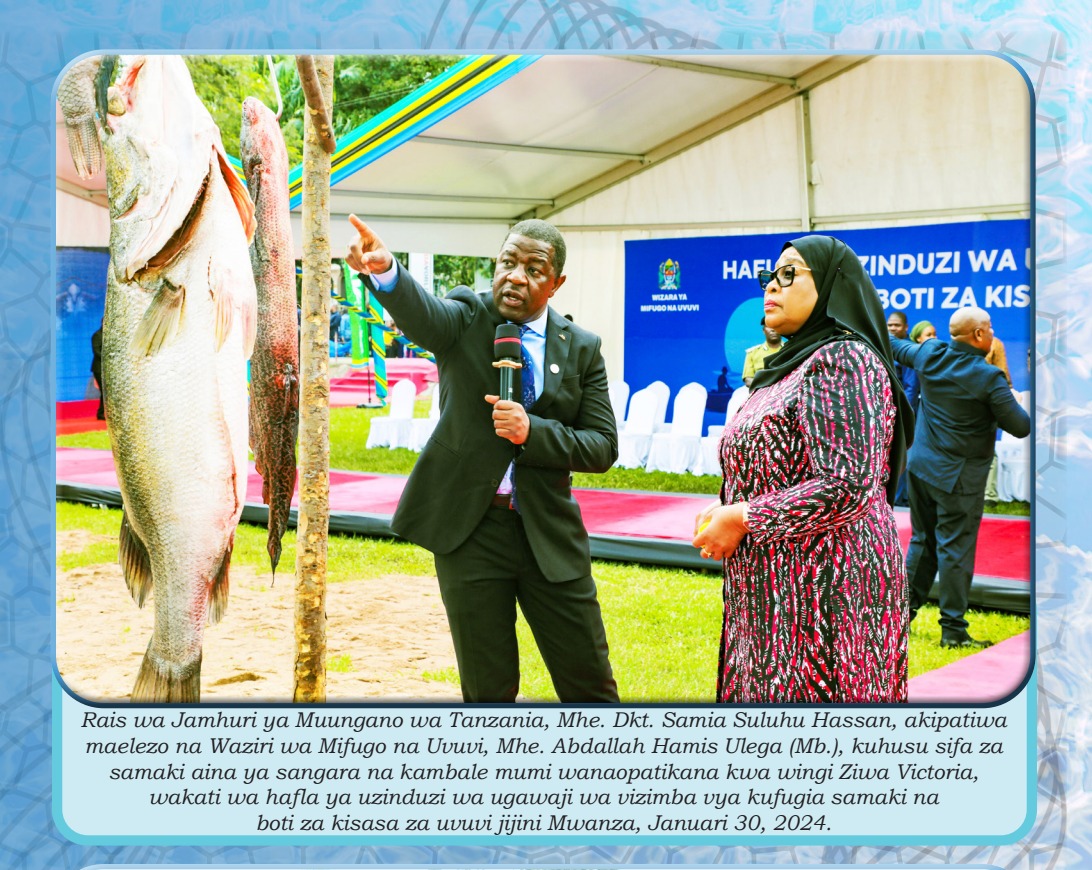In 2024/5 budget speech delivered by Hon. Abdallah Hamis Ulega (MP), Minister of Livestock and Fisheries, highlighted the significant economic impact of the livestock and fisheries sector on Tanzania’s economy. These sectors play a crucial role in ensuring food security, generating income, and providing employment for millions of Tanzanians. The budget outlines several initiatives aimed at further developing these sectors and maximizing their economic contributions.
One of the major highlights of the budget speech is the increase in livestock production. In the fiscal year 2023/2024, the total production of milk reached 3.97 billion liters, compared to 3.60 billion liters in the previous year, representing a 10.3% growth. Similarly, meat production grew from 803,264.3 tons to 963,856.55 tons, a 16.7% increase. These significant increases in production are attributed to improved livestock management practices, enhanced veterinary services, and the distribution of high-quality breeding stock. The increased production of milk and meat has not only improved food security but also generated higher incomes for livestock farmers.
The fisheries sector has also seen substantial growth, as highlighted in the budget speech. Fish production has increased due to investments in fish farming and the rehabilitation of fish markets. The installation of ice-making machines and the provision of concessional loans for fish farming equipment have contributed to the enhanced quality and availability of fish products. The government’s efforts to promote fish farming have provided a sustainable alternative to traditional fishing, reducing pressure on natural fish stocks and ensuring a stable supply of fish. The growth in fish production has created new opportunities for income generation and employment in fishing communities.
The budget speech by Hon. Abdallah Hamis Ulega (MP) also emphasized the importance of international trade in the livestock and fisheries sectors. The export of livestock and fish products has significantly contributed to foreign exchange earnings. In the fiscal year 2023/2024, the export of parent stock chicks and fish products to various countries, including Uganda, Kenya, Congo DRC, Rwanda, Burundi, and South Sudan, generated substantial revenue. The government’s efforts to develop export markets and ensure that Tanzanian livestock and fish products meet international standards have enhanced the competitiveness of these products in global markets.
Employment generation is another significant economic impact of the livestock and fisheries sectors. These sectors provide direct employment to millions of Tanzanians, including farmers, fishers, traders, and processors. The budget outlines several initiatives aimed at creating more job opportunities in these sectors. This includes the establishment of new livestock markets, fish farming demonstration farms, and processing facilities. By creating new jobs and supporting existing ones, the government aims to improve livelihoods and reduce poverty in rural areas.
The budget also highlights the importance of supporting small-scale farmers and fishers. Small-scale farmers and fishers often face challenges in accessing markets, financing, and technical support. The government is implementing initiatives to provide small-scale farmers and fishers with the necessary resources and support to improve their productivity and profitability. This includes the provision of concessional loans, training programs, and market access initiatives. By supporting small-scale farmers and fishers, the government aims to promote inclusive growth and ensure that all segments of society benefit from the economic opportunities in the livestock and fisheries sectors.
Public awareness and education are vital for maximizing the economic impact of the livestock and fisheries sectors. The budget includes initiatives to raise awareness about the economic opportunities in these sectors and to educate farmers and fishers on best practices. This involves the dissemination of information through various channels, including workshops, seminars, and media campaigns. By increasing awareness and knowledge, the government aims to encourage more Tanzanians to engage in livestock and fish farming and take advantage of the available economic opportunities.
The government’s efforts to develop the livestock and fisheries sectors are expected to have significant long-term economic benefits. Increased production and exports lead to higher foreign exchange earnings, which contribute to the overall economic growth and development of Tanzania. Enhanced productivity and profitability in these sectors translate into higher incomes for farmers and fishers, improving their livelihoods and reducing poverty. By investing in the livestock and fisheries sectors, the government aims to create a sustainable and prosperous agricultural economy.
In conclusion, the economic impact of the livestock and fisheries sectors outlined in the budget speech by Hon. Abdallah Hamis Ulega (MP) reflects the significant contributions of these sectors to Tanzania’s economy. Through increased production, development of export markets, employment generation, support for small-scale farmers and fishers, and public awareness initiatives, the government is taking comprehensive steps to maximize the economic benefits of the livestock and fisheries sectors. These initiatives are expected to have a significant positive impact on the livelihoods of Tanzanians and contribute to the overall economic growth and development of Tanzania.
